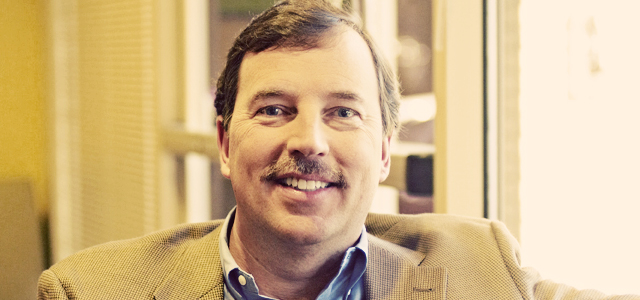After the tumultuous reign of Carol Bartz, a firebrand whose foul mouth was the delight of onlookers and the bane of her own company, Yahoo has settled on an entirely different type of leader.
Scott Thompson, 53, is a nerd, pure and simple. His managerial track record shows a certain personal risk-aversion; he’s an accountant and IT guy at heart. And over the past four months, as a watching world speculated on who might head up Yahoo next, he was at the top of exactly nobody’s shortlist.
Thompson has built a stable career for himself at the intersection of consumer-facing finance and technology architecture and infrastructure. For the most part, he has stayed far from the mainstream limelight, eschewing media attention while quietly raking in the chips. (In 2010, for example, Thompson took home in excess of $10 million as the president of Paypal.)
While Thompson did receive the Ernst & Young Entrepreneur of the Year award in 2011 (for the financial services category in northern California), he himself has never been an entrepreneur. Rather, he got to the top the hard way: a long, slow slog that involved long managerial and executive tenures at slow-moving finance companies.
Stonehill College is a private, Catholic institution in Easton, Massachusetts, not too far from Boston. It’s a rather small school, and it’s where Thompson’s career started. He studied accounting and computer science, earning a bachelor’s degree in both disciplines and setting the stage for the rest of his career — up until today, that is.
Over the past couple decades, Thompson has completed stints at major finance firms where he worked on information technology tasks. He worked at Coopers & Lybrand (which later merged with Price Waterhouse to become the professional services and accountancy megalith PricewaterhouseCoopers), where he worked on products for clients such as Wells Fargo.
Thompson was far from Silicon Valley during the dotcom era, working from 1998 to 2001 for Visa as the company’s chief technical officer and executive vice president of technology and support services. After that, he continued as Visa subsidiary Inovant’s executive vice president of technology solutions, working on electronic payment processing services until 2005, when Paypal came a-courtin’.
Thompson started out at Paypal as senior vice president and chief technology officer in Feburary 2005. (The company had been acquired by eBay some three years before Thompson came through the door.) He became the company’s president in January 2008.
The eBay/Paypal corporate culture had by then evolved into something quite unlike the Silicon Valley culture that prizes creativity, disruption and the kind of violent upheaval that leads to innovation. Rather, the many-headed entity had become a sort of executive farm team yielding high-level leaders with political prowess, a polished image for PR purposes and the patience needed to run companies the size of small countries.
For example, the company turned out Rajiv Dutta, who sat in the president’s office just before Thompson. Dutta went on to become managing director at private equity firm Elevation Partners, a board member for Palm, and distinguished executive-in-residence at the Drucker Institute and the Peter F. Drucker and Masatoshi Ito Graduate School of Management.
And then there’s Bill Cobb, who served eight years at eBay as the company’s president of the U.S. marketplaces division and, prior to that, held a handful of higher management and executive positions at the company. In May 2011, Cobb took over at H&R Block as that firm’s president and CEO.
But the most prominent graduate of the eBay school of management is undoubtedly Meg Whitman, who served as eBay’s president and CEO from 1998 to 2008 and won the Republican primary in the California gubernatorial race two years later. The election didn’t pan out in her favor, but she became CEO at Hewlett-Packard in mid 2011.
In a word, during the past few years, eBay and Paypal have become something of a breeding ground for stable and trustworthy leaders with the capacity to handle complex financial and business situations, up to and including the running of a rather large state. If Thompson has anything in common with other executives at the company he just left, he’s no Carol Bartz — and we’re sure Yahoo’s board appreciates that fact.
Still, did those decades of IT and consumer finance work prepare Thompson for leadership of a company focused on content and advertising? What makes him the best choice for Yahoo now, when the latter company is decidedly troubled and is already relinquishing many of its assets to shore itself up for a rocky road ahead?
Paypal was Thompson’s passion, and leading it was the zenith of his career. Everything from his bachelor’s degree onward prepared him to take the helm at that company. He told eBay chief John Donahoe just yesterday afternoon that he was leaving that position behind effective immediately — and in looking over Thompson’s career, it might just be the first truly shocking moment of his professional life.
In a conference call this morning, Thompson admitted he has “a lot to learn” about Yahoo and its business model, not to mention its recent history and immediate future.
“But,” he continued, “my instinct says that down in that data we will find ways to compete and innovate that the world hasn’t seen yet.”
Hopefully, his Paypal leadership stint also prepared him for the political battles that await him as Yahoo continues to dodge unsolicited acquisition offers and media rumors of private-equity takeovers.



